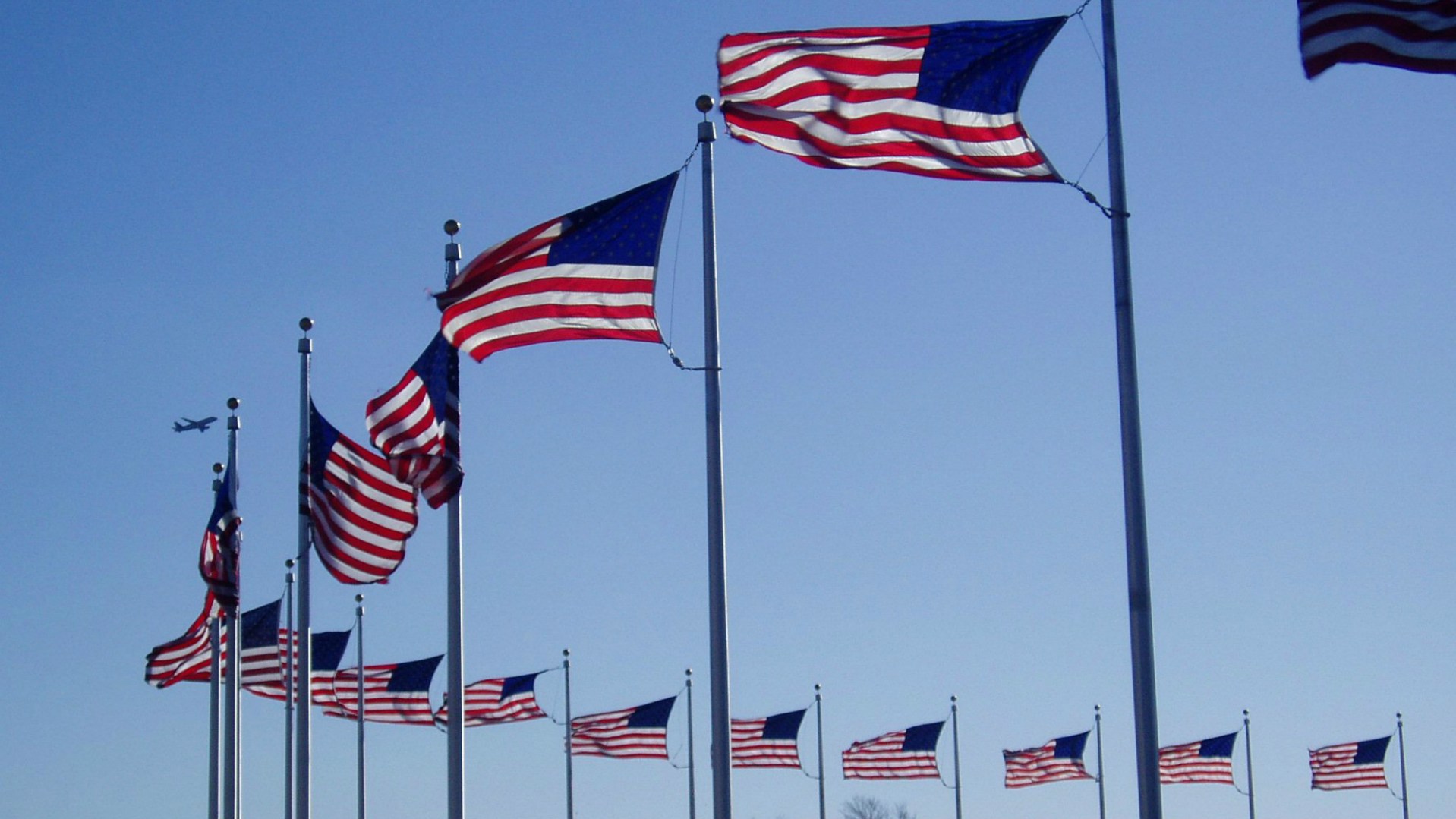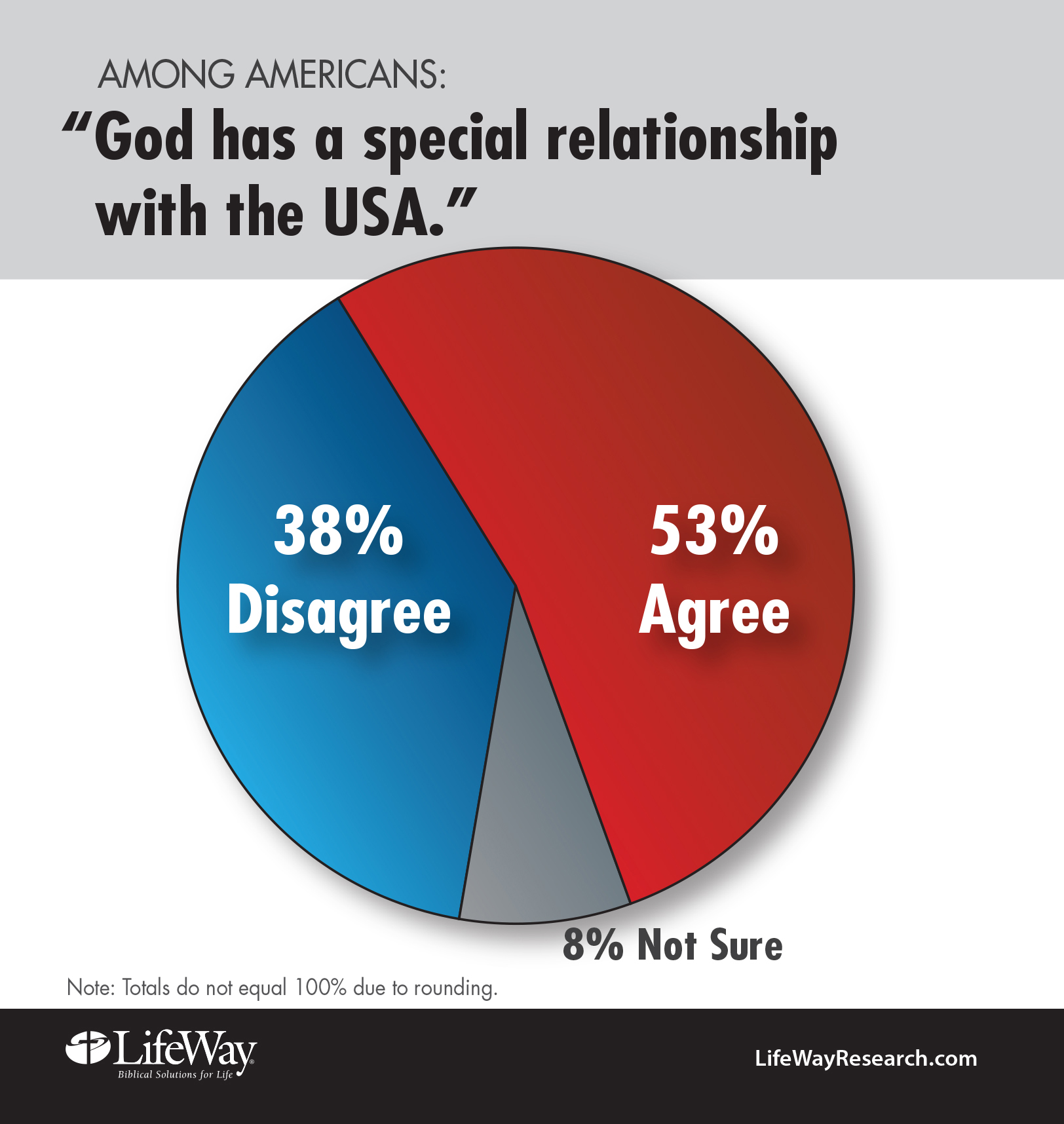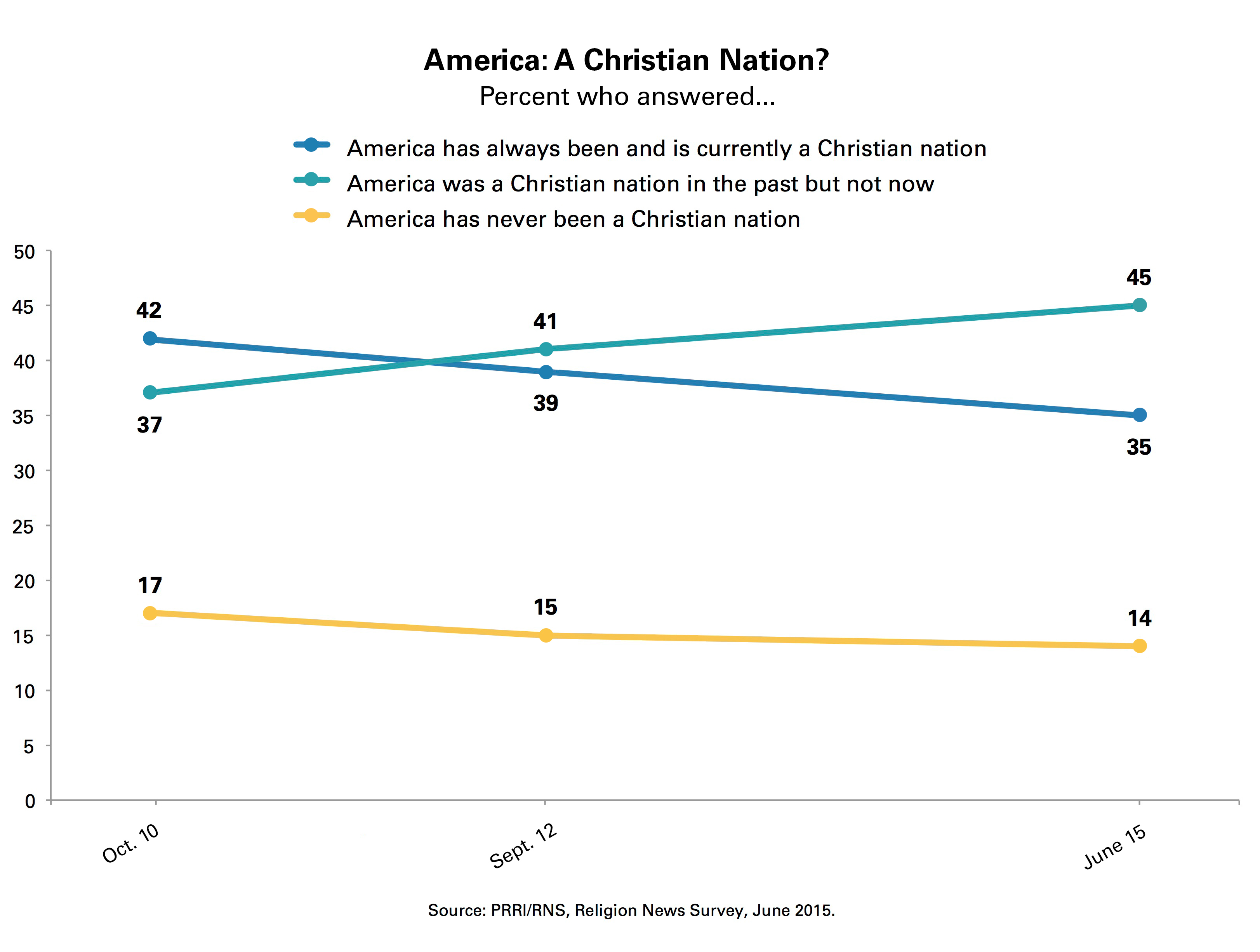This Fourth of July, God and America have a complicated relationship.
A third of Americans say the United States is a Christian nation. But more than half say the country has a special relationship with the Almighty.
Those are among the findings of two newly released reports from Public Religion Research Institute (PRRI) and LifeWay Research.
According to LifeWay's report, slightly more than half of all Americans (54%) say the US has a special relationship with God, with 35 percent strongly agreeing with this perspective.
African Americans (62%) are more likely than white Americans (51%) to claim that America has a special relationship with God.
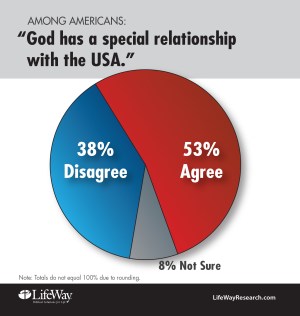
More than two-thirds of evangelicals (67 percent) believe in this unique relationship. Others who strongly hold this perspective include Southerners (59%), those with a high school degree or less (66%), women (58%), and older evangelicals over 45 (71%).
“‘God Bless America’ is more than a song or a prayer for many Americans,” said Ed Stetzer, executive director of LifeWay Research. “It is a belief that God has blessed America beyond what is typical for nations throughout history. I am sure that would spawn many theological conversations, but it’s important to note most Americans think God has a special relationship with their country.”
LifeWay also asked Americans whether they agreed that “America’s best days are behind us.” More than half of Americans (55%) disagree with the statement, including 35 percent who strongly disagree. In contrast, just 21 percent strongly agree and 19 percent somewhat agree.
Optimism is highest among the most highly educated Americans. Only one-quarter of those with a graduate degree believe America’s best days are gone, compared to 38 percent of those with some college, and 46 percent of those with a high school degree or less.
LifeWay conducted its survey of 1,000 adults in September 2014.
The PRRI report found that belief in America as a Christian nation is fading.
Just one in three Americans says the United States was and is a Christian nation, according to a PRRI/RNS survey of 1,007 adults conducted last month.
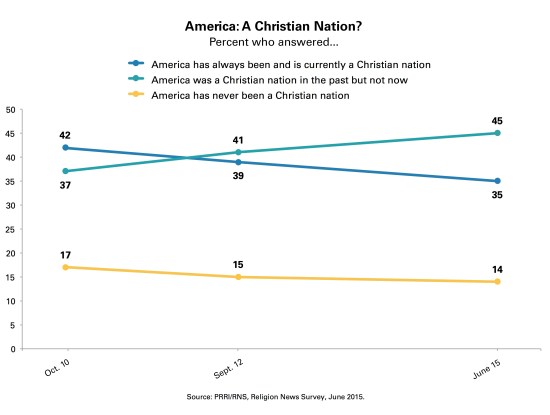
The number has fallen almost 10 points from 42 percent since it was asked in 2010. In contrast, the number of Americans who say the US formerly was a Christian nation, but now is not, has increased from 37 percent in 2010 to 45 percent in 2015.
Roughly one in seven Americans (14%) say America was never a Christian nation.
“Most Americans who believe the US is no longer a Christian nation view this change negatively,” says the PRRI report. “Among Americans who believe the US was once a Christian nation but is not anymore, roughly six in ten (61%) say that this is a bad thing, while about three in ten (29%) say that it is a good thing.”
Stetzer has previously examined data showing that that the majority of Americans support keeping “under God” in the Pledge of Allegiance. Stetzer has also shared his cautions about combining patriotism and worship. CT has asked whether churches should display the American flag. Mercer University professor David Gushee has argued that while the nation should not be Christians’ highest love, it still deserves our affection.
CT’s sister publication Christian Bible Studies has examined whether patriotism is Christian and the differences between patriotism and nationalism. Her.meneutics has examined how America’s religious freedoms might prompt Christians to care for immigrants.

